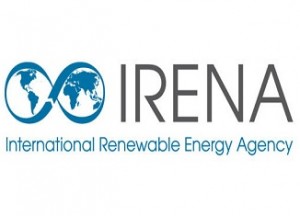 “As we advance deeper into a new energy paradigm, we need to pick-up the pace of our decarbonization efforts.” That was the message this week from the director-general of the International Renewable Energy Agency (IRENA), Adnan Amin.
“As we advance deeper into a new energy paradigm, we need to pick-up the pace of our decarbonization efforts.” That was the message this week from the director-general of the International Renewable Energy Agency (IRENA), Adnan Amin.
Speaking after the launch of an IRENA report called Rethinking Energy, Amin said that policies and regulations “continue to remain crucial to this end and to develop the renewables market.”
“We are seeing more and more countries hold auctions to deploy renewables, and as variable and distributed sources of renewables take on a greater role, regulators have implemented changes to enable grid integration at scale,” he said, adding that, “heating and cooling, and the potential of renewables for transport, are areas where future efforts are needed.”
The Rethinking Energy report states that falling costs, driven by innovation in technology and policy, is spurring renewable energy deployment and on the back of this is a “myriad of socioeconomic benefits.”
Speaking after the launch of an IRENA report called Rethinking Energy, Amin said that the report states that global investment in renewables has steadily grown for more than a decade, rising from less than $50 billion in 2004 to a record $305 billion in 2015.
The report states that solar PV will grow the fastest in terms of capacity and output, and new ways to store electricity “will be a game changer for growing variable renewable energy generation”. Indeed, IRENA estimates that battery storage for electricity could increase from less than 1 GW today to 250 GW by 2030.
Amin also stressed the importance of off-grid renewables in the bid to bring about global electrification.
“Achieving universal electricity access by 2030 will require us to boost global power generation — nearly 60 percent of that will have to come from stand-alone and mini-grid solutions,” Amin said. “Meeting this aim with off-grid renewables depends on the right combination of policies, financing, technology and institutional capacity. Making needed changes and accelerating deployment will allow countries to address global issues in sustainability, education, gender equality, health, water and food.”
Source: renewableenergyworld.com



